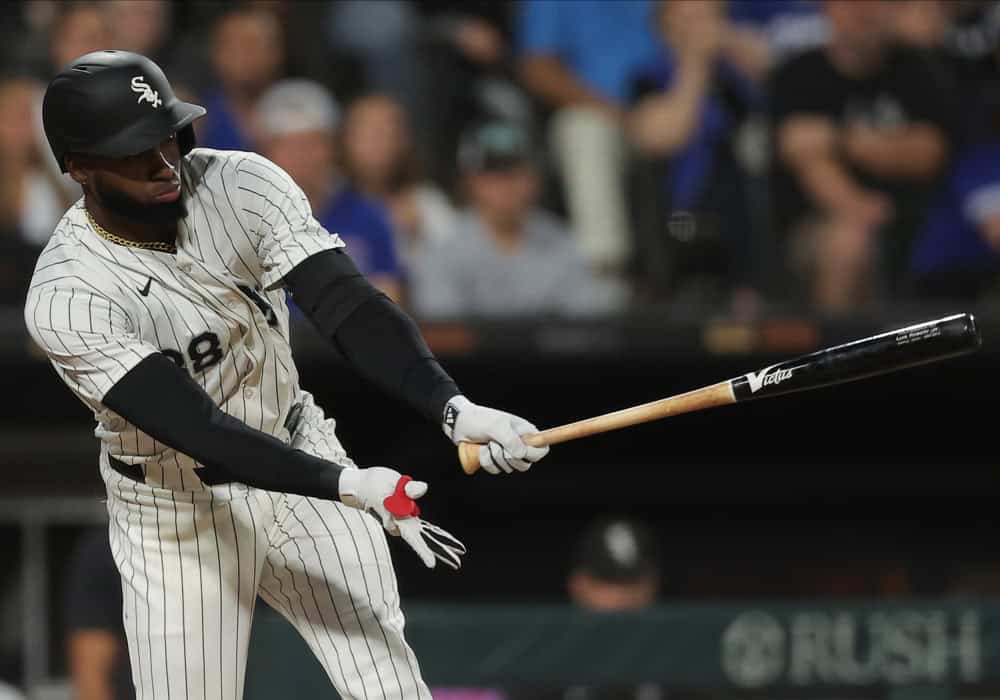Luis Robert Jr. doesn't speak to the media every day or anything, but when he has, he hasn't shied away.
"When the second half started, I wasn’t able to get into a rhythm, and I had like a 20 really bad games and that really affected me. I couldn’t rebound from that," Robert said via interpreter. "I see myself as one of the faces of this team. When the faces of this team aren’t producing or struggling, you have a season like this. Again, that’s on us, that’s on me."
Robert has had seasons affected by injury before. He's had years where he's missed more time than the 54 games his hip flexor cost him in 2024, and he had the whole deal where he unwisely was allowed to play through an obviously compromised wrist in 2022.
But there's no precedent for the 27-year-old being a below-average hitter at the major league level, as he's so clearly been in 2024. His .227/.282/.384 batting line is a career-worst in every aspect, as is his 33.3 percent strikeout rate. Counted on to be the one proven weapon in what was already expected to be a weak lineup, Robert sees his disappointing campaign as a central piece of the team's historically awful season. As the Sox have slid into possibly the worst second half in MLB history (12-49), Robert has followed suit by losing all traces of power from his game, hitting .220/.258/.308 over the same span.
"Nobody can be happy to see, seeing your name attached to a record like that," Robert said via interpreter. "But one year can’t define your career. One year can’t define your life. Life goes on and you can try to come back next year and do better and go from there."
As his odd performance was being parsed at the deadline, a scout from another team shared their confusion that Robert, famously flush with bat speed, was doing the vast majority of his extra-base damage on off speed pitches. Sure enough, the trend has continued. After slugging .590 against fastballs last season, which accounted for 20 of his 38 home runs, he's slugging just .398 on velocity in 2024 with an accompanying spike in whiff rate.
Robert has acknowledged at multiple points this year that he's been trying work on his pitch selection at the plate. Even though they've been ebbing away throughout his miserable second half, he's made real gains in that department. Entering Thursday, Robert had swung at 35.6 percent of pitches outside the zone. It's still and exorbitantly high figure relative to the rest of the league, but also a career-best. With the damage Robert is able to do to pitches in the strike zone, any degree of discipline added to his game figured to be enough to nudge him into a new stratosphere.
Instead it's nudged the foundation of Robert's brilliance out of place, making him routinely late for fastballs he once handled.
"That’s one of the things I’ve been trying to adjust," Robert said via interpreter. "I’ve been more concerned about swinging at pitches in the strike zone and not chasing, instead of being ready for the pitchers' mistakes. That’s why when the pitcher has been making mistakes, I haven’t been able to do damage to those pitches. I’ve been more concerned about not swinging at pitches out of the strike zone. That’s one of the things I’ve been working to adjust."
Having just completed a Zoom interview with White Sox prospect DJ Gladney where he cited Alexei Ramirez as one of his favorite players growing up, there's a risk of alienating the Sox Machine youth demographic with this reference. But after Ramirez's strong rookie campaign, there was a lot of dreaming on what he could be if he just added some patience to his game and improved upon a minuscule walk rate. After a few years of meager gains in walks that were more than canceled out by diminished power production, the concept of being able to simply maintain the standard issue Alexei Ramirez season grew more inviting.
Robert arrived to the White Sox organization far younger, with a style of play less calcified. But he is 27 now, and his past two years have given a specific view to what his archetypal season as a free-swinger can be (lotsa homers, middling OBP), and what it looks like when attempting to undertake a change of approach throws him out of whack. It seems pretty clear which version he would pick.
"I think one of the biggest parts of the bad season that we have had as a team is because I haven’t been able to do what I’m able to do on the field," Robert said via interpreter. "I’m going to keep the same routine I’ve been doing the last couple of years. Of course, there are a couple of things I need to adjust from the struggles I had this year. Also trying to enhance my mind and making it stronger for all the struggles you have to go through."
Robert has his own personal standards to live up to as motivation for undergoing mental skills training this offseason, and he's certainly learned this season how little control he has of what team he's playing with for the next three years. But while he's here, he'd like to see the team win and do his part to make it happen.
But part is a key word.
"That doesn’t depend on me, at least not exclusively," Robert said via interpreter about how the Sox can contend while he's still under contract. "I think we have to bring people to help this team. We have to make some moves. Again, that’s not something that I can do. That’s not on me."
Not all of it.






